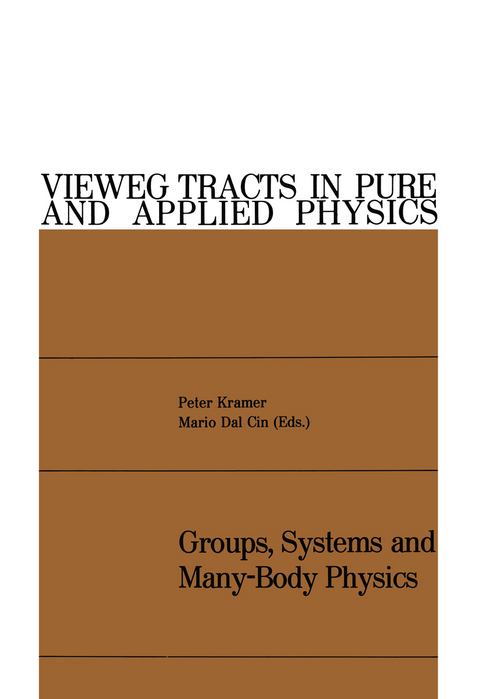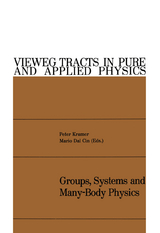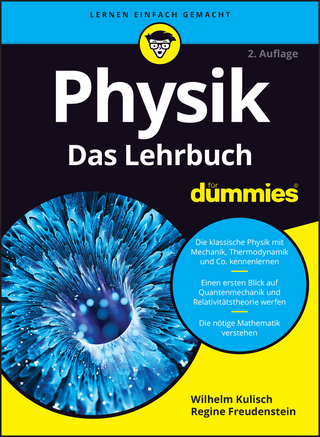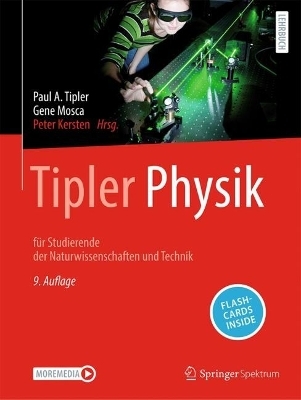Groups, Systems and Many-Body Physics
Vieweg & Teubner (Verlag)
978-3-528-08444-8 (ISBN)
I Fundamentals on Semigroups, Groups and Representations.- 1 Groups and group action.- 2 Examples of groups.- 3 Subgroup structures of groups and semigroups.- 4 Groups and topology.- 5 Representations of groups.- 6 Induced representations of the Poincaré group.- References.- II Fundamentals of Algebraic Quantum Theory.- Appendix: Jordan homomorphisms.- References.- III Pauli Principle and Indirect Exchange Phenomena in Molecules and Solids.- 1 Permutation symmetry and chemical bonding in molecules and solids.- References.- 2 Group-theoretical aspects pertaining to the quantum-mechanical N-particle system.- 3 The effective electron model: Applications.- References.- IV Groups and Semigroups for Composite Nucleon Systems.- 1 Introduction.- 2 Exchange and double cosets of the symmetric group.- 3 Orbital symmetry and the representation of the symmetric and general linear groups.- 4 Weyl operators, linear canonical transformations and Bargmann Hilbert space.- 5 Canonical transformations forinteracting n-body systems.- 6 Interaction of composite particles.- 7 Configurations of simple composite particles.- 8 Composite particles with a closed-shell configuration.- 9 Conclusion.- References.- V An Algebraic Approach for Spontaneous Symmetry Breaking in Quantum Statistical Mechanics.- 1 Introduction.- 2 General theory.- 3 Exactly solvable models.- 4 Existence of crystals.- References.- VI Dynamical Groups for the Motion of Relativistic Composite Systems.- 1 Introduction.- 2 The general framework.- 3 Composite systems and reducible representations.- 4 The method of induced representations from dynamical groups.- 5 Electron-positron complex.- 6 Composite systems. Inductive approach.- 7 Dynamical algebras, their contraction and generalizations.- 8 Passage to relativistic wave equations.- 9 Principles on the choice of infinite component wave equations.- 10 The Majorana "particle".- 11 An inverse problem.- 12 The class of composite systems based on conformal group.- 13 Electromagnetric interactions of composite systems.- 14 Other interactions of composite systems.- 15 A characteristic property of relativistic composite systems: Space-like states.- References.- VII New Representation Spaces of the Poincaré Group and Functional Quantum Theory.- References.- VIII The Algebraic Theory of Automata.- References.- IX On the (Internal) Symmetry Groups of Linear Dynamical Systems.- 1 Introduction and statement of the main definitions and results.- 2 Complete Teachability and complete observability.- 3 Nice selections and the local structure of Lm,n,pcr/GLn(IR).- 4 Realization theory.- 5 Feedback splits the external description degeneracy.- 6 Description of Lm,n,pco,cr(IR)/GLn(IR). Invariants.- 7 On the (non-)existence of canonical forms.- 8 On the geometry of Mm,n,pco,cr(IR). Holes and (partial) compactifications.- References.
| Erscheint lt. Verlag | 1.1.1980 |
|---|---|
| Reihe/Serie | Vieweg tracts in pure and applied physics |
| Zusatzinfo | XVI, 412 p. |
| Verlagsort | Wiesbaden |
| Sprache | englisch |
| Maße | 170 x 244 mm |
| Gewicht | 740 g |
| Themenwelt | Naturwissenschaften ► Physik / Astronomie ► Allgemeines / Lexika |
| Naturwissenschaften ► Physik / Astronomie ► Theoretische Physik | |
| Schlagworte | Dynamical Systems • ergodic theory • Field Theory • Geometry • Mechanics • Quantization • Quantum Theory • Statistical Mechanics • Topology • wave equation |
| ISBN-10 | 3-528-08444-8 / 3528084448 |
| ISBN-13 | 978-3-528-08444-8 / 9783528084448 |
| Zustand | Neuware |
| Haben Sie eine Frage zum Produkt? |
aus dem Bereich




